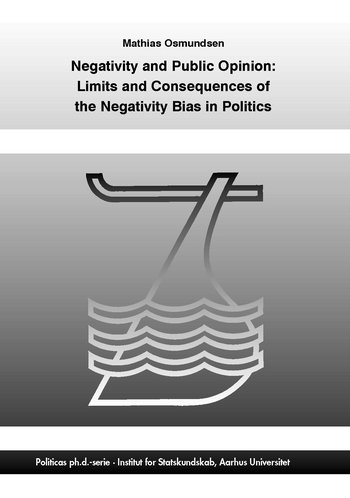Mathias Osmundsen
Negativity and Public Opinion: Limits and Consequences of the Negativity Bias in Politics

This dissertation advances our understanding of public opinion formation in response to political information. From stories about economic busts, to news about the rise of crime, to articles about the outbreak of new diseases, much existing work suggests that citizens generally prioritize negative over positive information when forming their political beliefs. Yet little is known about whether all segments of the electorate are equally affected by a “negativity bias” in response to political communication and if all types of negative information matter the same for public opinion. Building on political psychology, the dissertation develops a theoretical framework suggesting that the effects of both negative and positive political information depend critically on citizens’ preexisting expectations about the political world, as well as the policy issues under examination. In a series of studies drawing on experimental data, physiological data and survey data from different countries, it demonstrates – somewhat paradoxically – that although citizens with optimistic expectations are often swayed by negative political messages, pessimistic citizens pay much more attention to positive information; they exhibit a “positivity bias”. Further, the dissertation shows that negative information on different policy issues often have distinct but theoretically predictable effects on policy attitudes, sometimes leading to conservative policy preferences, and, at other times, liberal preferences. Collectively, these findings lead to a much more nuanced portrait of the pliability of the mass public in the face of negativity. The dissertation is of interest to all who care about the nature of mass opinion and communication effects in liberal democracies.
![]() Ophavsretten tilhører Politica. Materialet må ikke bruges eller distribueres i kommercielt øjemed.
Ophavsretten tilhører Politica. Materialet må ikke bruges eller distribueres i kommercielt øjemed.